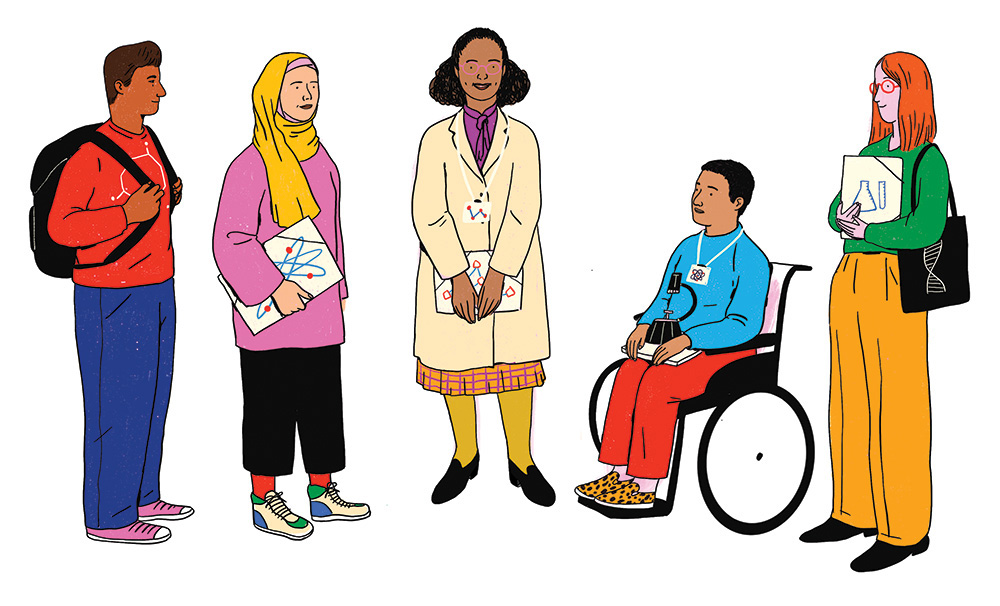
Annual Biomedical Research Conference for Minoritized Scientists 2023
Date: Nov. 15–18, 2023
Location: Phoenix Convention Center in Arizona and online
Attendees: 5,571
Exhibitors: ~1,000
Website: abrcms.org
The Annual Biomedical Research Conference for Minoritized Scientists (ABRCMS) was first launched by the American Society for Microbiology (ASM) in 2001 to encourage minority, first-generation, veteran, and disabled students to pursue higher education and further their career trajectories in the fields of science, technology, engineering, and math (STEM). The inaugural conference, made possible by a grant from the National Institute of General Medical Sciences for the National Institutes of Health, attracted 1,800 participants; attendance has since grown to more than 5,500.
Long-time ASM staffer Irene V. Hulede, who serves as the Washington, D.C.–based association’s director of education, gets “very energized when I see that we are making an impact,” she said. Hulede, who has worked on and developed ABRCMS “since its inception,” said the ABRCMS brand is strong because ASM makes sure participants “have such a remarkable experience” that they become spokespeople for the event.
The four-day hybrid event gathers community college students and university students from undergraduate to doctorate levels, as well as researchers, program directors, and administrators. In addition, around 1,000 exhibitors, representing different graduate programs, participate. And as the conference name would imply, its attendee base is racially and culturally diverse — more than half are Asian, Black or African American, and Hispanic, Latinx, or Spanish.
The scientific disciplines represented are wide-ranging, too — attendees are studying for degrees in 12 different areas, from cancer biology to neuroscience. The program is a mix of broader topics for all attendees on such issues as mental health and leadership and concurrent sessions on specific disciplines. To help foster a sense of community within each of these disciplines, ABRCMS hosts special networking meals during which attendees are asked to sit with others in their own area of study, each identified by tablecloth color. According to Hulede, the initiative is always a hit.
“We always wanted to find a way where the folks from the different disciplines can really network together, share information, and expand their horizon,” she said. “So, it just really gives folks a chance to have these conversations, but all together in one room.”
ABRCMS365
ABRCMS developed extensive online programming about a decade ago, well before the pandemic, that served as training year-round, ASM’s Irene Hulede said, “so we kind of had a leg up once COVID hit.”
As part of an effort to invest in the digital space more every year, ABRCMS recently has launched an online spring symposium for high-school students and college freshmen, a graduate student symposium, and ABRCMS365, a reimagined version of its year-round programming that is free and accessible to those who cannot participate in the annual hybrid event.
Casey Gale is managing editor at Convene. Illustration by Carmen Segovia
Visit the Archive
- Read past installments of There’s a Meeting For That
